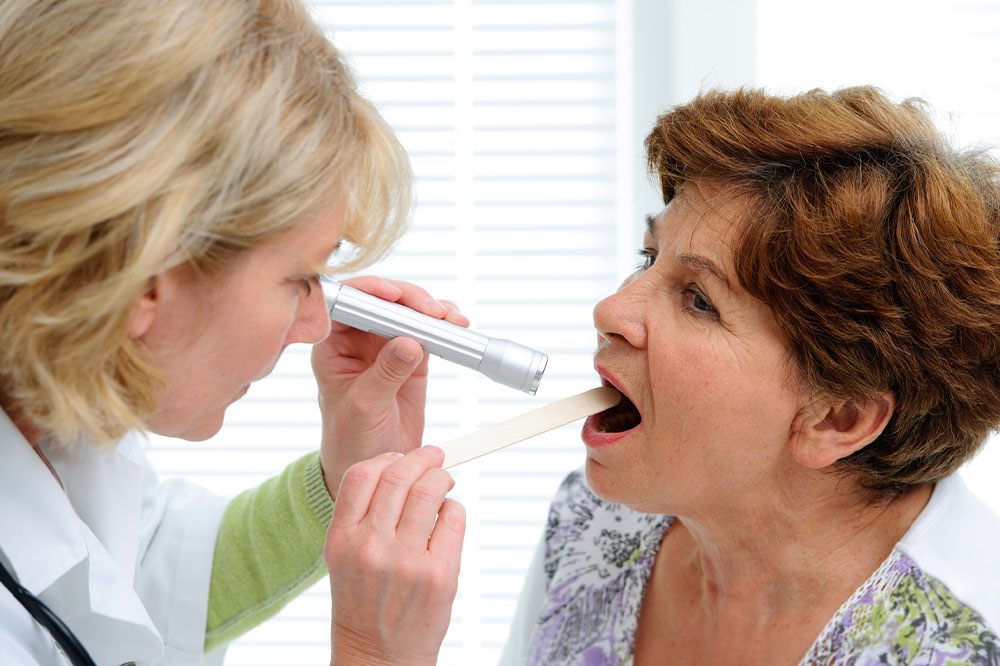9 early warning signs of cancer

Improved cancer screening and treatments have allowed people to live better lives even after developing cancer. However, even today, the condition is undiagnosed because people associate the early warning signs of cancer with another health complication. The symptoms of cancer may depend on where it grows. Mutations usually cause the growth to push against nearby organs, nerves, and blood vessels. Here are ten signs that may indicate the onset of the disease:
Fatigue
One of the most common signs of cancer is fatigue. However, people often associate this with a common sign of overworking the body, such as while playing a sport or after a strenuous day at work. But if one develops fatigue without physical exertion or even after appropriate rest, it might be an early sign of cancer. Cancer uses nutrients from the body to grow and advance, which affects the body’s ability to replenish healthy cells. This can lead to signs like extreme fatigue.
Along with fatigue, it is common for an individual to notice a significant reduction in their body mass. Changes in a meal plan, taking prescriptions, or falling ill often because of cancer causes this.
Fever
One may develop a fever due to a cold or flu that may go away on its own over a few days or weeks. But if one is affected by a recurring fever, it could be an early warning sign of cancer. A few characteristics to watch for include a fever that surfaces only at night, unusual night sweats, and having no other signs of infection. Even other health conditions like a chronic cough or headaches that do not go away for more than two weeks might indicate the onset of lung cancer or a brain tumor.
Excessive bruising
It is normal to develop a bruise on certain areas of the body, such as the shin, due to injuries like bumping against a hard surface. Such bruising may go away after a couple of days. But if one develops a bruise without any underlying cause, one might need to get the sign checked by an expert. The symptoms could occur when there are various blood cancers in the body and may require immediate care to control and slow the progression.
Pain
People who experience sudden pain could be at a higher risk of developing cancer in their bodies. While pain is usually a symptom of health issues unrelated to cancer or due to injuries, if it is persistent, it could indicate a potentially cancerous growth. Pain from cancer might be triggered by a mass or tumor pushing on other areas of the body. It could also occur due to the chemicals released by cancerous growths, through metastasis, or by spreading from where the cancer had started. If an individual experiences persistent pain that does not fade and is unsure of its origin, they should get an expert’s opinion.
Bloating
Women can feel bloated occasionally, especially during their menstrual period. However, if the sign persists for over two weeks, it could cause concern. According to experts, feeling bloated for a prolonged time might stem from developing ovarian or gastrointestinal cancers, which must be treated immediately.
Skin anomalies
The skin is the largest organ in our body and could serve as a window into our overall health. However, multiple factors, such as bacterial infections, jaundice, and injuries, could affect its texture. One may also notice changes in their skin as they grow older, such as wrinkles. However, apart from these symptoms, one should also note that skin anomalies could indicate cancer development. For example, if an individual notices changes in a skin mole, they should speak to an expert about potential cancer signs. The mole might turn asymmetrical or have jagged edges, change color or get darker, have irregular borders, or turn large and keep growing.
Bladder or bowel problems
One may notice changes in bladder or bowel health for several reasons. They might experience long-term constipation, diarrhea, or even notice a change in the size of their stools. But if they develop these symptoms out of the ordinary, it might indicate a cancerous existence in their colon. Symptoms of bladder cancer include blood in the urine and pain when passing urine. One may also notice changes in bladder function, such as the need to pass urine frequently or the inability to urinate fully. Therefore, any unusual changes in bladder or bowel health may require expert oversight.
Irregular bleeding or discharge
One of the most common early warning signs of early or advanced cancer is irregular discharge or bleeding. One might cough up blood if they have cancerous growths in the lungs. Rectal or colon cancer may lead to complications like black, dark, or bloody stools. Furthermore, women who experience abnormal vaginal bleeding might be at risk of cancer in the cervix or endometrium. Bloody discharge from the nipples could indicate the onset of breast cancer, and blood in the urine may suggest mutations in the bladder or kidneys. Therefore, any such complications should be checked by an expert to determine the appropriate treatment plan.
Changes in the mouth
One may develop white patches in their mouth and on their tongue. These are potential precancerous signs that could mutate into oral cancer. Other common symptoms of oral cancer that one should look for include bleeding, sores, or numbness in the mouth. These signs must be addressed and treated by an expert at the earliest possible time. Even swollen lymph nodes could indicate the onset of cancer, especially if the gland remains swollen for three to four weeks.
















